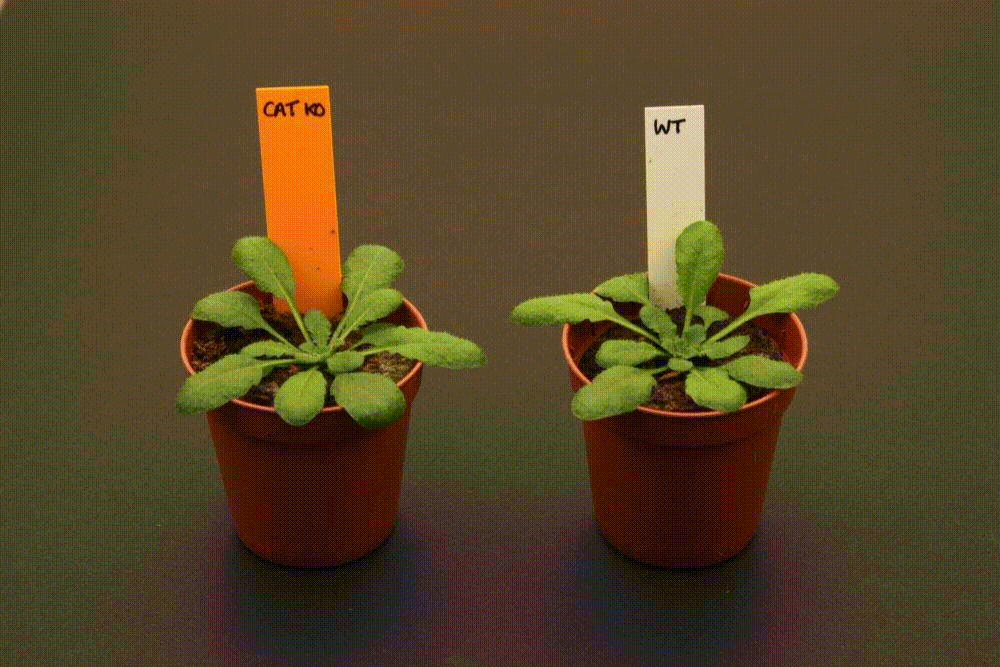ROS (Reactive Oxygen Species)
Reactive Oxygen Species
Reactive Oxygen Species (ROS) are highly reactive molecules formed as natural byproducts of cellular metabolism in plants. These molecules include superoxide radicals (O2•−), hydrogen peroxide (H2O2), hydroxyl radicals (•OH), and singlet oxygen (^1O2).
While ROS play crucial roles in various physiological processes, including growth, development, and defense responses, excessive accumulation of ROS can lead to cellular damage, known as oxidative stress.
Despite their damaging effects, ROS also serve as signaling molecules in plant stress responses. They trigger a cascade of molecular events leading to the activation of defense mechanisms, including the expression of stress-related genes, synthesis of protective compounds, and reinforcement of cell walls.
This is where the Van Breusegem lab comes in: understanding the dynamics of ROS production, scavenging, and signaling pathways is crucial for developing strategies to enhance plant tolerance to environmental stresses, thereby ensuring sustainable agricultural productivity in the face of changing climatic conditions and emerging challenges. By unraveling the intricate interplay between ROS and plant physiology, we aim to harness the potential of ROS modulation to improve crop resilience and mitigate the adverse effects of abiotic and biotic stresses.

